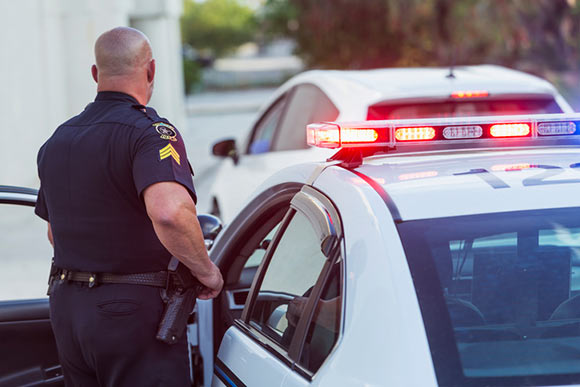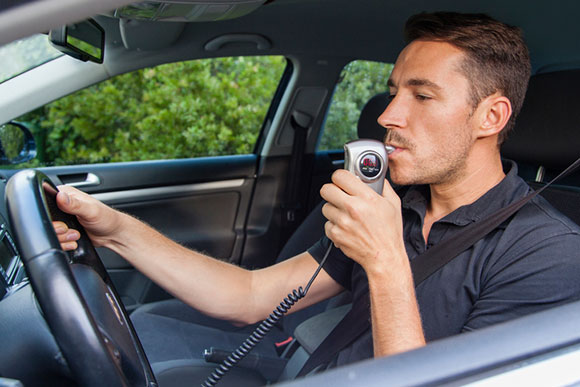The body camera footage has been released, showing the precise moment that Las Vegas Police Officer, Chad Betts, shot 21-year-old Kenneth Ryan Busse Jr. Busse was killed on the scene.
The case isn’t necessarily black and white. Betts had pulled over Busee due to him crashing into two other vehicles and being suspected of drunk driving. After Busse refused to take a field sobriety test, he fired a bullet at Betts’ metro partner. Las Vegas DUI lawyers agree that the man could have easily answered to the allegations, and this situation escalated quickly.

What Does the Body Cam Footage Show About the DUI Stop?
In the newly released footage, viewers can see Busse staggering after being shot twice in the chest. He touches his wounds then falls forward, dropping his gun to the ground. You can hear Betts calling out, “Don’t touch it! Don’t touch it!”
The incident took place at approximately 7:30 a.m. on a Wednesday morning, at the intersection of Rainbow and West Gary. Both of the other vehicles that Busse hit had drivers that reported Busse seemed impaired.
Suspect Refused a Sobriety Test
In the video, viewers can watch the entire police interaction with Busse, from the moments Busse refuses the test, to the questioning that follows. After Busse is told he’s under arrest for DUI, Busse becomes defiant. He eventually tosses a water bottle into the bed of his pickup then jogs over a bush. Officer Betts jogs after him and shouts for his partner’s attention.
At this point, Busse crouches down, and when he stands back up from the bush, he is holding a handgun that he allegedly hid before the police arrived at the scene of the crash.
Here is where the shooting took place: Busse fired first, followed by the officer. Assistant Sheriff Tim Kelly called Busse’s actions “suicide by cop.”
“It’s unfortunate this incident did not end with just cars being damaged and a citation,” Kelly said. Kelly reported that if Busse had survived, he would have been arrested on one count of attempted murder on a protected person, one count of assault with a deadly weapon on a protected person, and two counts of assault with a deadly weapon, which would have been in reference to the two other drivers who were still at the crash scene when the shooting started.
Officer Betts, 43, has been with Metro since October 1999. His partner, officer Pilette, 52, has been with the department since July 1998. Per protocol, both of the officers were placed on paid leave pending the outcome of this investigation.
Changes Coming to Nevada DUI Laws
DUIs in Nevada are not a new problem, and the state is ever devoted to coming up with new ways to prevent them. The latest is a change in the law that now requires DUI offenders in Nevada to install alcohol-sensing ignition locks in their vehicles. The device (which works when an individual blows into it) will measure the individual’s blood alcohol concentration and will not start the ignition unless the BAC is at a legal level to drive. The device also contains a camera to ensure the person blowing into it is the one behind the wheel.

Approximately a third of the over 300 deaths on Nevada’s roads in 2017 were related to DUIs, as per the Nevada Department of Public Safety, who held a news press meeting last week to discuss the new law.
“Anybody who drives under the influence is a menace to society,” department spokesman Andrew Bennett said at the press meeting. He went on to cite research from the Insurance Institute for Highway Safety; this institution shares that the states with mandatory ignition interlock laws saw a 16% decrease, on average, in DUI related deaths.
What are the Details of the New DUI Law?
This new law, passed by the state Legislature in 2017 as SB259 requires DUI offenders who wish to return to driving to acquire a device from one of nine approved vendors in Nevada, at the cost of about $60-$80 per month. For those convicted, the judge will order the device remain in place for at least 185 days if the driver’s BAC was below .18 percent (more than double the legal limit of .08 percent.) For a BAC higher than that, the device could be required for 2-3 years.
The devices will also be required for drivers convicted of DUI on marijuana, even if officers don’t detect pot.
If a convicted driver operates any car (personal or company) without the device, it will be considered a “pretty serious crime” said Kevin Malone, a Department of Motor Vehicles spokesman. It could cost the offender their license for a minimum of three years and result in another prosecution.
Of course, this device is not the only answer to the DUI problem in Nevada; this particular law is only related to repeat offenders, but at least it’s a step in the right direction. As of 2017, there were approximately 2,000 installed and activated devices in Nevada; experts believe interlocks could exceed 10,000 devices within the next two years.





